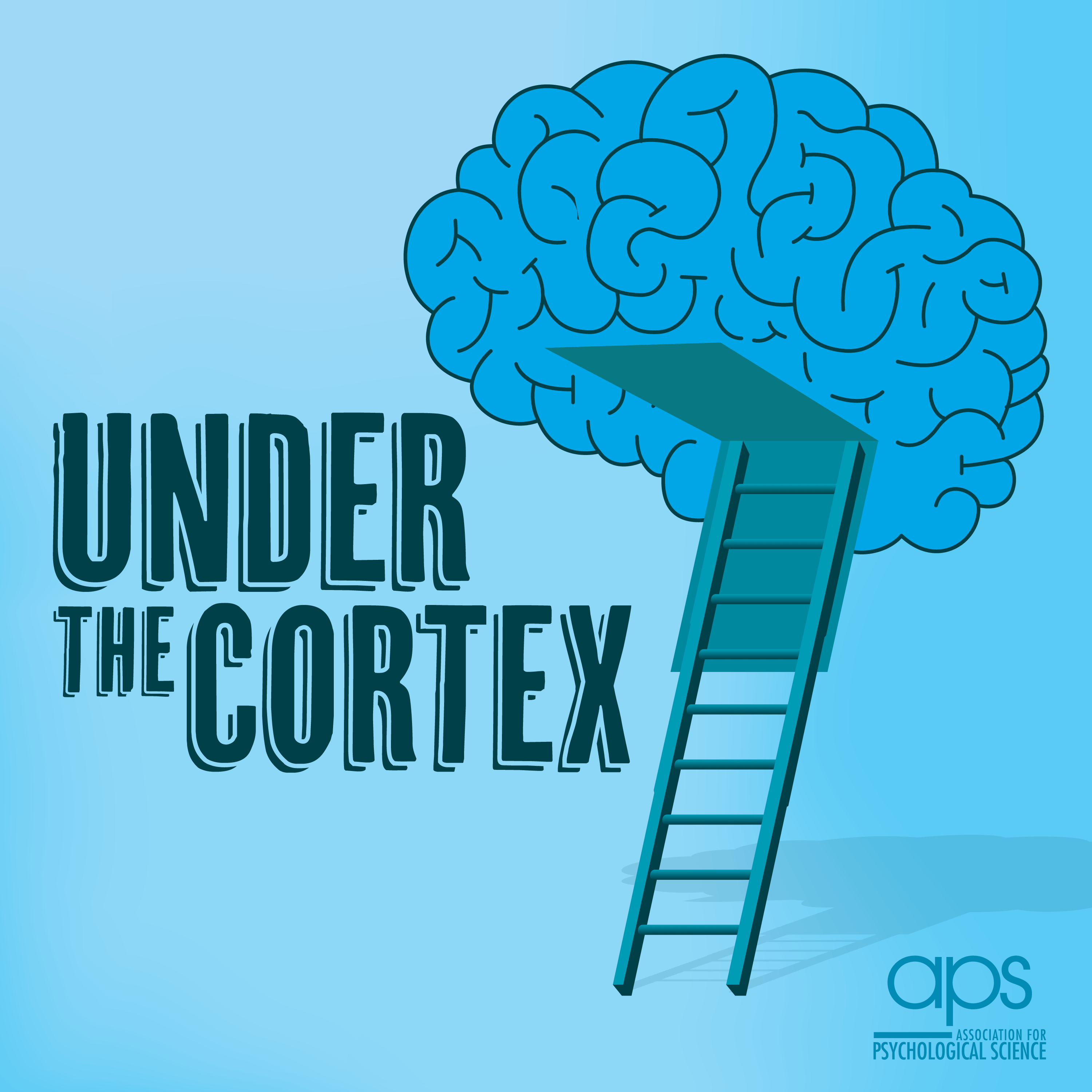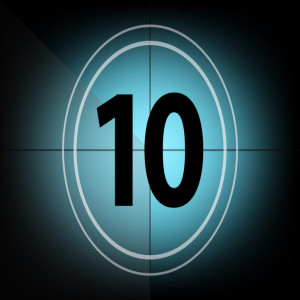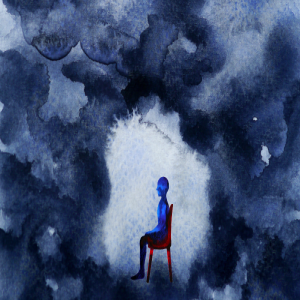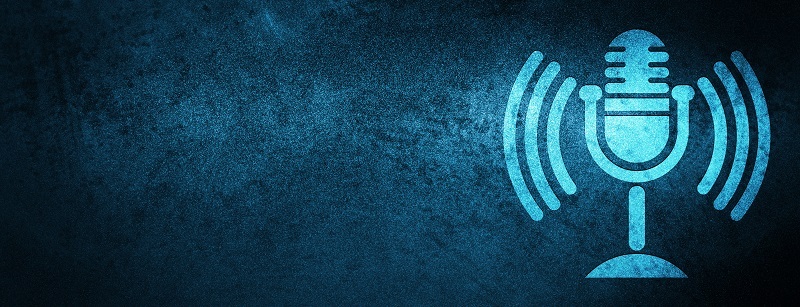
234.5K
Downloads
152
Episodes
The podcast of the Association for Psychological Science. What does science tell us about the way we think, behave, and learn about the world around us? Under the Cortex is proudly sponsored by Macmillan Learning Psychology, where captivating content meets genuine engagement. Our authors, who are seasoned educators, understand today’s teaching challenges. We aim to craft and present both information and interactive tools that truly connect with students. Whether in-person or online, we support instructors and inspire students. Macmillan Learning Psychology: Engaging Every Student, Supporting Every Instructor, Setting New Standards for Teaching and Learning.
Episodes

Wednesday Jan 19, 2022
The Grieving Brain
Wednesday Jan 19, 2022
Wednesday Jan 19, 2022
Loss of a loved one is something everyone experiences, but we have had little scientific perspective on this universal experience. Renowned grief expert, neuroscientist, and psychologist Mary-Frances O’Connor shares groundbreaking discoveries about what happens in our brain when we grieve, providing a new paradigm for understanding love, loss, and learning. In this interview she also discusses her upcoming book, "The Grieving Brain: The Surprising Science of How We Learn from Love and Loss."

Wednesday Dec 29, 2021
The Top 10 of 2021: Psychological Science in the News
Wednesday Dec 29, 2021
Wednesday Dec 29, 2021
Looking back on the year that was, APS's Charles Blue and Ludmila Nunes discuss the top stories from the world of psychological science in 2021.

Monday Dec 20, 2021
Better Behavior With Virtual Reality
Monday Dec 20, 2021
Monday Dec 20, 2021
Do unto others as you would have them do unto you. This well-known saying is known as the “Golden Rule. Simply put, it means to treat others the way you want to be treated. The moral principle behind the Golden Rule is admirable, but it’s not always how things happen in the real world. It if were, there would be less crime and fewer conflicts. But what if you were visiting a virtual world? Might it be possible to experience the harmful actions you take from the perspective of the victim? Could these VR experiences help us live by the Golden Rule?
Mel Slater, a researcher with the University of Barcelona and author on a paper published in the journal Current Directions in Psychological Science, explains how we might foster prosocial behavior with virtual reality.

Wednesday Dec 01, 2021
Recipe for Success: Entrepreneurship and Psychological Science
Wednesday Dec 01, 2021
Wednesday Dec 01, 2021
What does it take to be an entrepreneur and succeed in business, apart from time, money, and a winning business plan?
It turns out there are a few necessary behaviors entrepreneurs and start-up teams need if they want to build and maintain a thriving business. Though there is no guaranteed formula for success, psychological science can shed light on the personal and team-based elements that offer the greatest chance of becoming a captain of industry.
In this episode of Under the Cortex, we look the crossroads of business acumen and psychological science with the help of Nikki Blacksmith and Mo McCusker of Blackhawke Behavior Science, the winners of the 2021 APS Entrepreneurship Poster Awards.

Monday Nov 15, 2021
Toys, Tots, and Gender
Monday Nov 15, 2021
Monday Nov 15, 2021
With the holidays nearly upon us, parents are thinking more seriously about Yuletide gifts for their children. From shopping malls to online retailers, marketing and product placements often fall along clearly defined lines: certain toys for boys and certain toys for girls. To tell us what this means for children and childhood development, we have Campbell Leaper with UC Santa Cruz, a developmental and social psychologist who investigates gender and sexism during childhood, adolescence, and adulthood.

Wednesday Nov 03, 2021
Ask the Witness Only Once
Wednesday Nov 03, 2021
Wednesday Nov 03, 2021
When an eyewitness stands up in court and identifies the person they say committed a crime, the impact can be powerful and effective. This dramatic testimony can be sincere and honest. It can also be wrong and tragically lead to wrongful convictions, lifelong incarcerations, and even the death penalty. But how can this happen? The witness is telling the court what they truly believe and remember. And therein lies the problem: memory, the often fuzzy and malleable recollections of events in the past.
In the latest edition of Psychological Science in the Public Interest, researchers look at the problems with eyewitness misidentifications in the courtroom and explain why prosecutors and law enforcement should test a witness’s memory of a suspect only once. Joining us is John Wixted, a researcher at the University of California at San Diego and first author on this article.

Wednesday Oct 27, 2021
Science Rewind: Revisiting Three of Our Favorite Early Stories
Wednesday Oct 27, 2021
Wednesday Oct 27, 2021
As Under the Cortex enters its second year, we decided to comb through the archive and revisit three exciting stories from our early days.
Our first story explores why groups can look on the “good old days” as a guide for curing the woes of today.
Next we discuss why we’re drawn to villains, monstrous characters from fiction, especially if they remind us of ourselves in some way.
And finally on this look back, we “resurrect” our creepy look at haunted houses and why they’re so fun!

Wednesday Oct 20, 2021
The Ghastly Impact of Being Ghosted
Wednesday Oct 20, 2021
Wednesday Oct 20, 2021
Autumn is in the air and people are preparing for a happy--yet spooky--Halloween, with all the trapping, including witches, monsters, and ghosts. Few things are scarier than ghosts, with the possible exception of being ghosted in an online relationship. While the fanciful frights of a Halloween ghost quickly fade, the impact of online ghosting may last much longer and have some genuinely frightening impacts later in life.
Earlier this year, Dr. Maureen Coyle, a visiting assistant professor at Seton Hall University, presented research on how being ghosted affected expectations about future relationships. This research was also presented in Dr. Coyle's 2021 APS Annual Meeting Flash Talk: Looking for my Boo.

Wednesday Oct 13, 2021
Why Some People Won‘t Get Vaccinated
Wednesday Oct 13, 2021
Wednesday Oct 13, 2021
Vaccines to protect against COVID-19 are now widely available in the United States. But, wide availability doesn’t mean wide acceptance. Vaccine hesitancy and individuals who proudly claim they are anti-vax are not new phenomena. But why, with so much availability, do people resist vaccines so aggressively? What is the psychology behind this hesitancy? Is there anything we can do to change the minds of people to follow medical advice and get vaccinated? To help us unravel that vexing question, Under the Cortex welcomes author and psychologist Dr. Stuart Vyse.

Tuesday Oct 05, 2021
Psychological Interventions for the Treatment of Chronic Pain in Adults
Tuesday Oct 05, 2021
Tuesday Oct 05, 2021
Pain is the body’s way of alerting the brain to injury and disease. Without a robust pain response, physical trauma could go unnoticed and untreated. Some people, however, experience chronic pain that lasts long after an injury has healed or has no easily identifiable cause. Unfortunately, treating chronic pain with over-the-counter and prescription medication has its own health risks, including adverse side effects and addiction. In the latest issue of Psychological Science in the Public Interest (PSPI), a team of researchers explores how psychological interventions can be part of a comprehensive plan to manage chronic pain while reducing the need for surgeries and potentially dangerous medications. Charles Blue interviews Mary Driscoll, a researcher at Yale University, and first author on the issue's main article.
